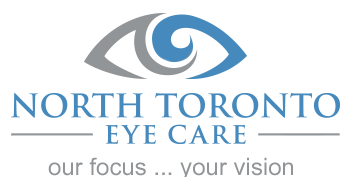Ocular Surface Disease, commonly referred to as OSD, is a grouping of multiple eye disorders that include dry eye, meibomian gland dysfunction, blepharitis, ocular allergy, and conjunctivitis.
In many cases these conditions may occur at the same time, and because many have similar signs and symptoms they are frequently misdiagnosed. Ocular surface conditions interact in ways that can be complex, and mistreatment is common when the root causes are misunderstood.
Without a definitive diagnosis of the root cause of Ocular Surface Disease (OSD) in a patient, it is still possible to manage these using non-surgical therapies that:
- Eliminate factors that may worsen the condition
- Support the production of sufficient tear fluid
- Control inflammation of the ocular surface
- Reduce possibility of infection
If non-surgical therapies prove ineffective in the treatment and management of OSD, it may be necessary to consider surgical management alternatives.
At North Toronto Eye Care, we offered advanced diagnostics to help identify and effectively treat Ocular Surface Diseases, some of the technology used in our office identification, management, and treatment include:
LipiScan: Technology used to test the meibomian glands, which are most likely to cause dry eye. LipiScan technology provides images that show blockages and irregularities in the meibomian glands.
OPD-Scan III: Provides corneal surface analysis.
Osmolarity Testing: An in-office test that provides an analysis of the salt content of a patient’s tears. This can allow for enhanced analysis of dry eye and assists in planning the best course of treatment.
LipiFlow: LipiFlow technology is used in the treatment and management of Meibomian Gland Dysfunction. By applying heat and massaging the eyelids, blockages in the eye are evacuated and oil production in the eye is promoted.
Using the right technology, diagnosis and management of Ocular Surface Diseases becomes better for the patient and their eye doctor, allowing for advanced, educated decision-making. If you are experiencing symptoms of OSD, please contact our office to request an evaluation.
